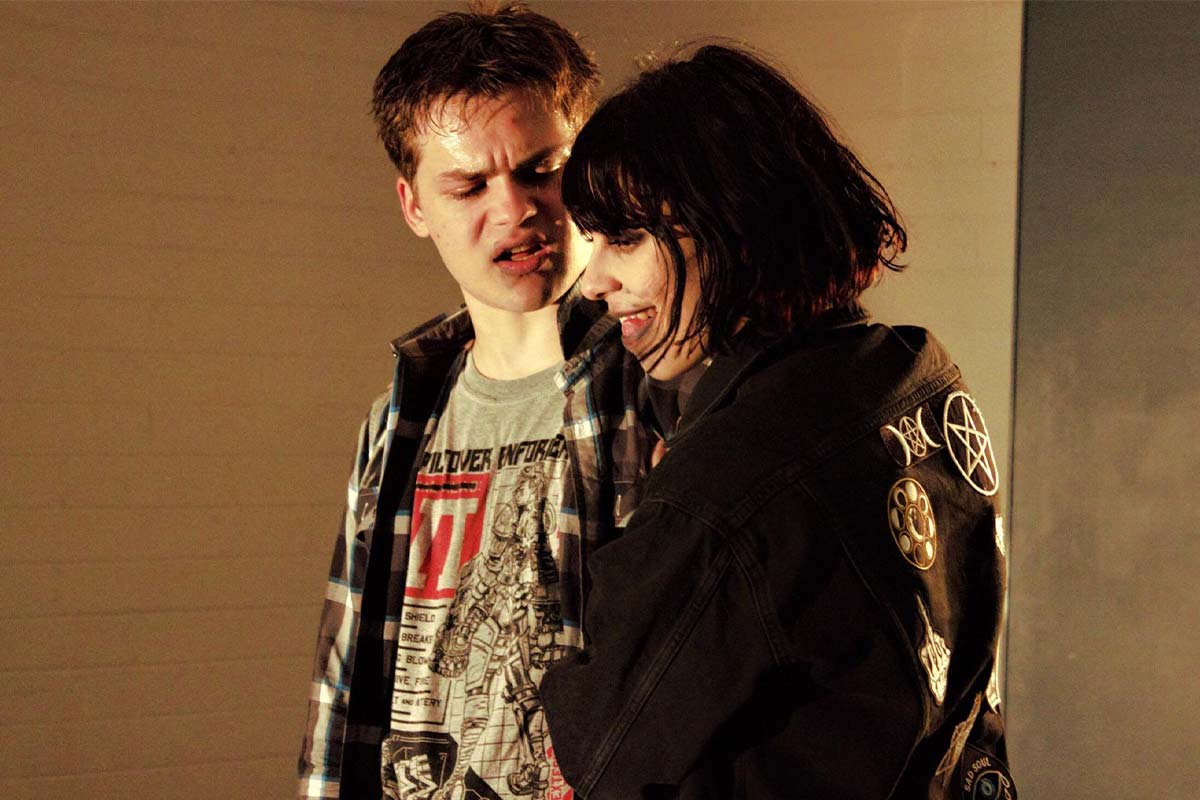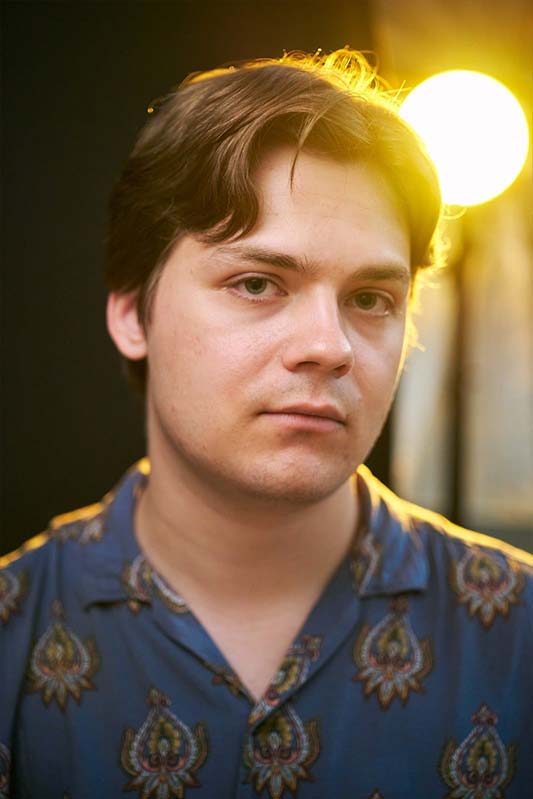
Ever wondered what a journey through drama and creativity looks like at Flinders? Get ready for an insightful peak into one artist’s adventure.
For Gianluca Noble, it’s been quite the ride. He has also just been named as one of the recipients of the 2024 Helpmann Academy’ Creative Investment Fellowship. This funding allows five emerging creatives to share in a pool of $50,000 to support their self-designed development projects.
Read more about Gianluca’s Flinders experience and what his plans are for this year!
What did you study at Flinders?
My first year was in the Bachelor of Arts High Achievers program, where I majored in Politics and Drama Studies. Then I was accepted into the Bachelor of Creative Arts (Drama) [now, a Bachelor of Performance (Acting)] in 2015, and I completed my Honours in 2019.
Plans for the fellowship
My fellowship will see me travel to Chicago and participate in iOTheater’s Summer Intensive in Improv. iOTheater was created in the 1981 as “ImprovOlympic” by Del Close and Charna Halpern, two alumni of The Second City, and it has become an internationally recognised ensemble improv comedy school. I am eager to explore the art-form as a method to develop a self-sustaining approach to creating new performance, and to help support the artistic community in South Australia by running workshops and improv jams with professional performers on my return. I have also been working a teaching artist for children and young people since my graduation, and so developing skills in improv will help specialise my craft as a tutor and workshop facilitator.
Improv is wonderful as both an acting exercise and as a performance for an audience in that it requires no preparation and very little expense; these are things we need in an increasingly burnt-out and struggling local industry. Actors can often feel isolated and like they are competing with the world, even in a smaller city such as Adelaide, and I aim to change that by fostering the community of working artists.
The Flinders and Helpmann Academy partnership
Flinders’ partnership with Helpmann Academy has been vital to my early career development and has enabled some incredible opportunities. Notably, I was awarded the Helpmann InReview Mentorship, during which I was mentored by two renowned arts reviewers – Murray Bramwell and Jane Llewellyn – and developed my experience and portfolio in arts criticism. I now write for InReview as a freelancer, reviewing theatre performances and writing articles, such as Defying Despair – the challenges facing emerging theatre-makers, which reported on the issues with the current dynamic of South Australia’s arts ecosystem, such as project-to-project funding frameworks, a post-COVID shock of reduced support, and a cost-of-living crisis.
I’ve also taken advantage of various one-day workshops, such as an incredible “Industry ‘Speed-Dating’” day a few years ago, which enabled me to sit down one-on-one with Angela Heesom and Chris Drummond and discuss my career objectives; and recently, an evening with Perks Accounting that helped clarify the best way to manage your business as a sole-trader creative artist.
By maintaining a relationship with Helpmann Academy for its graduates, Flinders University assists graduates with the fundamental early career steps necessary to enable a flourishing life in the arts.
Gianluca’s advice for aspiring creatives
Know what you’re talking about: One of my first lecturers Joh Hartog instilled in us early that for us to practice in the arts, you must engage with the arts. If you want to be an actor, this means going to see shows; not just big-budget extravaganzas at the Festival Centre (though those are great too), but weird little indie shows being performed in alleyways or carparks, pro-am theatre, dance, slam poetry, stand-up comedy, clown, and small international shows that turn up in Adelaide, usually at the Fringe.
I’ve been in so many rooms with award-winning performers that have sold out in Edinburgh, but their audiences here are barely half full. Change that by being one of those cool people like me that goes to these shows.
When you travel, seek out the theatres; it gives you a far better pulse of a place. Seek out the strange, the uncomfortable, and the experimental.
And watch movies too.
Read anything and everything: Read plays. Read literary fiction. Read trashy novels. Read Shakespeare. Read hacky political books. Read philosophy. Read history. Read newspapers and magazines. Read gender theory. Read cereal boxes. Read erotica (in private). Read Chekhov. Read your little cousin’s screenplay draft. Maybe don’t read TruthSocial unless you’re torturing yourself by writing a semi-autobiographical one-man show about conspiracy theories and pervasive disinformation… But read people you disagree with too. And don’t forget to read Caryl Churchill and Patricia Cornelius. You live and will create art in the world, so you must attempt to know the world first. And don’t listen to those Debbie Downers on Book-Tok – just read at your own pace and to your own fascinations. And think critically about what you read.
Do I sound old yet?
Find people whose work or ideas you like and hang out with them (if they let you): Art is an inherently social pursuit, even if you have a solitary practice like writing or sculpting. An actor alone is a terribly insecure soul; a group of actors can create a breathtaking performance in a week. You’ll hear a lot of advice about ‘networking’, but breathlessly ‘networking’ with everyone will burn you out. Instead, form meaningful bonds with creatives and mentors that you respect and admire, and be one of those artists that gets people together to make stuff; that way, you’ll excite each other about art and the work.
Money is a challenge; be inventive: It’s an error to think that actors can only be jobbing actors or survive off a ‘money job’. There’s nothing wrong with serving drinks or waiting tables, but I know incredible artists that are also amazing counsellors, PhDs, telenovella writers, barristers, business owners, and health professionals. In these insecure times, most people simply cannot afford to just be artists. But that gives us a chance to explore other parts of ourselves.
Don’t be afraid to ask for help when you need it: Too many artists (and people) suffer in silence. We are overrepresented in terms of mental health concerns, and the insecurity of our pursuits can create difficulties. Reach out to friends, peers, mentors, health professionals, and family when you need help. Don’t listen to the ‘if you can’t handle the heat, get out of the kitchen’ attitude. We live in a world, and things affect us emotionally.
If they didn’t, we would make pretty crappy art.
If you’re interested in pursuing a career in Acting, Directing or Theatre Making, check out the Performance degrees we have at Flinders!


